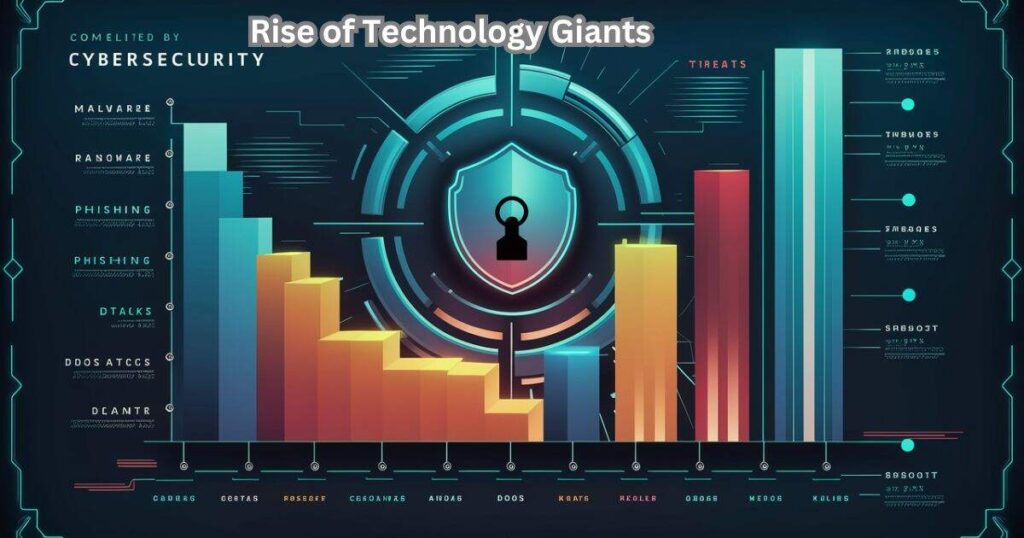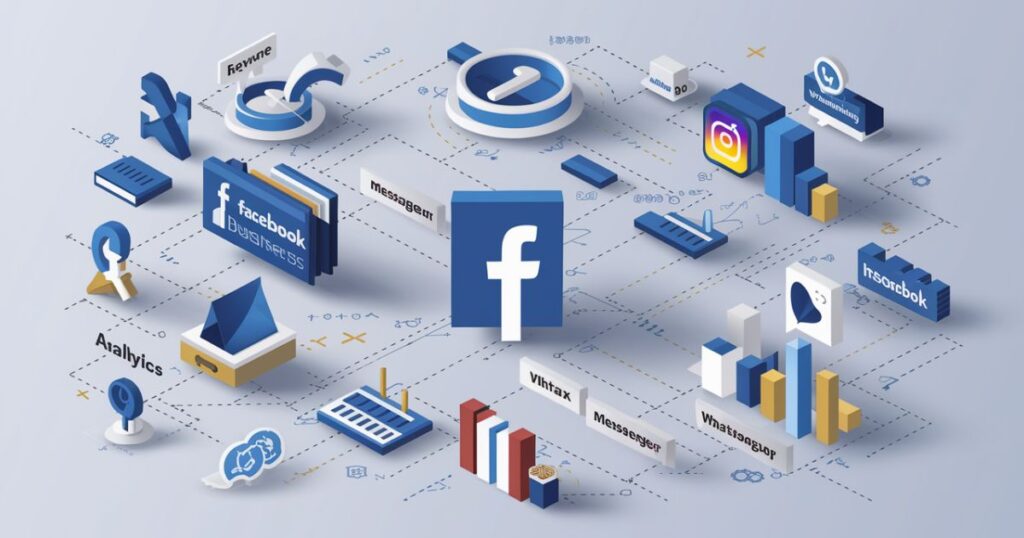Global security refers to the safety and stability of nations and their citizens worldwide. It includes protecting against threats like terrorism, cyber-attacks, and political unrest. Ensuring global security is vital for peace and prosperity.
Imagine a world where a few tech companies hold the keys to our safety. This is not a sci-fi plot but a reality today. These companies influence our online and offline security in profound ways.
Technology giants like Google, Microsoft, and Apple have vast resources and advanced tools. They play a vital role in maintaining global security. Their technologies can prevent cyber threats and enhance observation. However, their control also raises concerns about privacy and power concentration.
The Rise of Technology Giants

Those days are long gone, folks. These technology giants have ballooned into mega-corporations that touch every aspect of our lives. It’s like they’ve got their fingers in every digital pie imaginable. Their growth hasn’t just been about expanding product lines.
These companies have become integral to how we communicate, shop, work, and even how we protect ourselves online. They’ve morphed from simple tech startups into the guardians of our digital landscape, wielding more influence than some countries when it comes to cybersecurity and data protection.
Growth of companies such as Google, Amazon, Facebook, Apple, and Microsoft
Take Google, for instance. It started as a way to find stuff online, but now it’s the gatekeeper of most of the world’s information. Amazon went from selling books to running the backbone of the internet through Amazon Web Services (AWS).
Facebook connected us all, for better or worse, and now it’s trying to create entire virtual worlds. Apple turned privacy into a selling point, while Microsoft transformed from a software company into a cloud computing powerhouse.
These companies didn’t just grow, they exploded onto the global stage, reshaping the internet landscape as they went. They’ve become so big that their decisions about security measures and data privacy affect billions of people worldwide.
How have these entities expanded beyond their original Business Models?

Big tech firms didn’t stay in their comfort zones. They made smart choices and looked for new opportunities. Google bought YouTube and became a leader in video. Amazon created AWS and now supports a large part of the internet.
They also saw early on that security was important. As cyber threats grew, they knew data security was essential. They invested billions in top security measures, making it a key part of their business.
Areas of Influence Where Technology Giants Control The Global Security
When it comes to global security, these tech titans are the new superpowers. Their influence stretches far beyond just making sure your password is strong enough. They’re shaping policies, setting standards, and even influencing how governments approach national security.
Their reach is so vast that it’s hard to overstate. From the moment you wake up and check your phone to when you fall asleep streaming a show, these companies are there, silently guarding against digital threats. It’s a brave new world, and they’re the ones writing the rulebook.
Data Security:
In the information age, data is the new gold, and these tech companies are sitting on Fort Knox. They hold more personal information than any government, and with that comes a massive responsibility. Google knows what you search for, Amazon knows what you buy, and Facebook knows who your friends are.
Protecting this data isn’t just about keeping your shopping habits secret. It’s about safeguarding information that could, in the wrong hands, threaten national security or manipulate elections. These companies have had to become experts in data protection, developing sophisticated systems to keep our information safe from hackers, scammers, and other digital ne’er-do-wells.
Cybersecurity:
In the constant cat-and-mouse game between security experts and cybercriminals, big tech firms are leading the charge. They’re not just playing defense, they’re actively hunting down threats before they can do damage. It’s like they’re the CDC of the internet, always on the lookout for the next digital virus.
Their efforts go beyond just protecting their own systems. Many of these companies offer cybersecurity tools and services to other businesses and even governments. Microsoft’s security division, for example, has become a major player in helping organizations fend off cyber threats. When a new type of attack emerges, it’s often these tech giants who are first to spot it and develop countermeasures.
Surveillance:
Here’s where things get a bit sticky. These companies have the ability to see a lot of what goes on online. Sometimes, they work with governments to help catch bad guys. But this power to watch also raises big questions about privacy and freedom.
It’s a classic case of security versus liberty. On one hand, this surveillance can help prevent terrorist attacks or catch criminals. On the other hand, it opens the door to potential abuse. The debate over how much online privacy we should sacrifice for security is ongoing, and these tech giants are right at the center of it.
Role of Tech Giants in Influencing Global Security Policies and Practices
When these digital corporations speak, governments listen. Their expertise in cybersecurity and their control over vast swathes of the internet give them unprecedented influence in shaping policy-making around online safety.
It’s not just about lobbying, though that certainly plays a part. These companies are often the ones governments turn to for advice on how to handle new digital threats. They’re not just following the rules, they’re helping write them.
Influencing Security Policy:
Tech giants don’t just wait for new laws to be passed, they actively shape regulations. Through a combination of lobbying, public advocacy, and demonstration of best practices, they influence how governments approach cybersecurity challenges.
For example, when the European Union (EU) was drafting its General Data Protection Regulation (GDPR), big tech firms were heavily involved in discussions about what was feasible and effective. Their input helped shape one of the most significant pieces of data protection legislation in history.
Shaping Cybersecurity Standards:

These companies aren’t just influencing government policies, they’re setting industry standards. When Google or Microsoft implements a new security measure, it often becomes the benchmark that others follow. They’re essentially writing the playbook for web security.
Through collaborations with international organizations and standards bodies, they help define what good cybersecurity looks like on a global scale. It’s like they’re the cool kids at school – everyone wants to do what they’re doing.
Global Security Practice:
When it comes to implementing security measures, these tech giants lead by example. They’re constantly innovating new ways to protect against online risks, and their practices often become industry standards.
But it’s not just about keeping their own houses in order. Many of these companies share threat intelligence with each other and with governments. It’s a recognition that in the face of global cybersecurity challenges, cooperation is key. After all, a rising tide lifts all boats even in the choppy waters of the internet.
Conclusion
In a nutshell, tech giants like Google, Amazon, and Facebook have become the unsung heroes of global security. They’re not just making cool gadgets anymore, they’re the guardians of our online world.
From fighting off cyber bad guys to helping governments make smart security choices, these companies are shaping how we stay safe in the digital age. It’s a big job with big responsibilities, and as users, we need to stay informed about how these tech titans are protecting our digital lives.
FAQs
How do technology giants influence global security?
They shape policies, set standards, and implement cutting-edge security measures that often become industry benchmarks.
What are the ethical concerns associated with the role of tech giants in global security?
Privacy issues, potential for mass surveillance, and the concentration of power in the hands of a few companies are major concerns.
Can technology companies keep our data safe?
While they invest heavily in security, no system is perfect. They’re constantly working to stay ahead of evolving threats.
What is the role of technology giants in cybersecurity?
They develop and implement security measures, share threat intelligence, and help set global cybersecurity standards.
How does technology impact global security?
It provides new tools for protection but also creates new vulnerabilities and challenges.
What is the concept of global security?
It encompasses protection against a wide range of threats, from cyberattacks to terrorism, that can impact international peace and stability.

